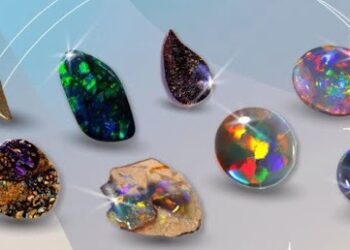In the quest for personal development and improved workplace dynamics, personality assessments have become increasingly popular. Two of the most widely used tests are the DISC assessment and the Myers-Briggs Type Indicator (MBTI). Both offer valuable insights into individual behavior and communication styles, but they serve different purposes and are built on different theoretical foundations. In this article, we’ll explore the key differences between DISC and Myers-Briggs, helping you determine which personality test is right for you or your organization.
Understanding the DISC Assessment
The DISC assessment is based on the work of psychologist William Marston in the 1920s. It categorizes behavior into four primary personality traits: Dominance (D), Influence (I), Steadiness (S), and Conscientiousness (C). Each of these traits represents a different aspect of how individuals interact with their environment and communicate with others.
- Dominance (D): Direct, results-oriented, and assertive.
- Influence (I): Outgoing, enthusiastic, and persuasive.
- Steadiness (S): Calm, supportive, and patient.
- Conscientiousness (C): Analytical, detail-oriented, and precise.
The DISC assessment is often used in the workplace to improve communication, enhance teamwork, and resolve conflicts. Taking a DISC online assessment provides a straightforward framework for understanding and adapting to the behavior of others, making it a practical tool for both personal and professional development.
Understanding the Myers-Briggs Type Indicator (MBTI)
The Myers-Briggs Type Indicator (MBTI) was developed by Katharine Cook Briggs and her daughter Isabel Briggs Myers, based on the theories of Carl Jung. The MBTI categorizes individuals into 16 distinct personality types based on four dichotomies:
- Extraversion (E) vs. Introversion (I): Focus on the external world vs. the internal world.
- Sensing (S) vs. Intuition (N): Focus on concrete information vs. abstract concepts.
- Thinking (T) vs. Feeling (F): Decision-making based on logic vs. values and emotions.
- Judging (J) vs. Perceiving (P): Preference for structure vs. flexibility.
The MBTI is widely used in personal development, career counseling, and team building. It provides a deeper exploration of how individuals perceive the world and make decisions, offering insights into their natural preferences and tendencies.
Key Differences Between DISC and Myers-Briggs
- Purpose and Application
- DISC: Primarily focused on observable behavior and communication styles. It is widely used in the workplace for improving teamwork, leadership, and conflict resolution. The DISC assessment is practical and action-oriented, making it ideal for organizational use.
- Myers-Briggs: Focuses on internal cognitive processes and psychological preferences. The MBTI is often used for personal development, self-awareness, and career planning. It provides a more in-depth understanding of how individuals think and perceive the world.
- Complexity and Depth
- DISC: The DISC model is relatively simple, with just four primary traits. This simplicity makes it easy to understand and apply, especially in fast-paced work environments.
- Myers-Briggs: The MBTI offers 16 distinct personality types, providing a more nuanced view of individual differences. However, this complexity can make it more challenging to interpret and apply, especially without proper training.
- Theoretical Foundation
- DISC: Based on behavioral psychology and the work of William Marston, the DISC assessment focuses on observable actions and interactions.
- Myers-Briggs: Rooted in Carl Jung’s theories of psychological types, the MBTI explores deeper cognitive functions and how individuals process information and make decisions.
- Flexibility and Adaptation
- DISC: Highly adaptable to different contexts, the DISC assessment is particularly useful for understanding and improving specific behaviors in the workplace. It can be used in a variety of settings, from sales and customer service to leadership and team building.
- Myers-Briggs: While also applicable in the workplace, the MBTI is often used for more introspective purposes, such as understanding personal strengths and weaknesses, exploring career options, and fostering personal growth.
- Ease of Use
- DISC: The DISC assessment is user-friendly and can be easily administered and understood without extensive training. Its results are straightforward, making it accessible to a wide audience.
- Myers-Briggs: The MBTI requires more in-depth understanding and interpretation. It often involves detailed reports and sometimes professional guidance to fully grasp the implications of each personality type.
Which Test is Right for You?
Choosing between DISC and Myers-Briggs depends on your goals and the context in which you plan to use the assessment.
- For Workplace Applications: If your primary focus is improving communication, teamwork, and leadership in a professional setting, the DISC assessment is likely the better choice. Its straightforward approach to behavior and communication makes it easy to implement in various organizational contexts.
- For Personal Development: If you’re interested in exploring your inner thought processes, understanding your decision-making style, and gaining insights into your personal preferences, the Myers-Briggs Type Indicator may be more suitable. It offers a deeper dive into your psychological makeup, making it ideal for self-reflection and career planning.
- For a Comprehensive Approach: Some individuals and organizations choose to use both assessments to gain a well-rounded understanding of their personality and behavior. Combining DISC’s practical, behavior-focused insights with Myers-Briggs’ in-depth psychological analysis can provide a complete picture of how you interact with the world and with others.
Conclusion
Both the DISC assessment and the Myers-Briggs Type Indicator offer valuable insights into personality and behavior, but they serve different purposes and cater to different needs. By understanding the key differences between these two assessments, you can make an informed decision about which one is right for you or your organization. Whether you choose DISC, Myers-Briggs, or both, these tools can help you unlock your potential, improve your relationships, and achieve greater success in both your personal and professional life.







